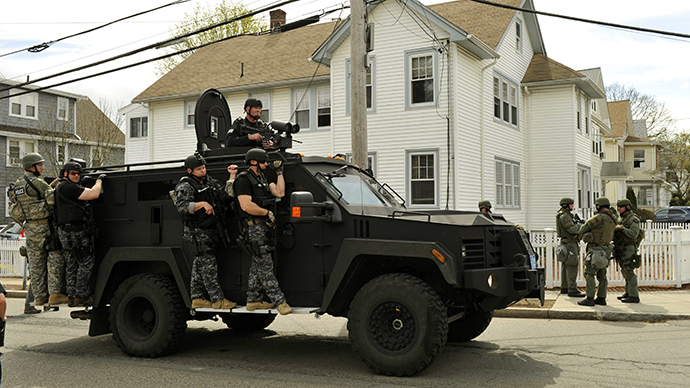Counterterrorism Patriot Act provision now widely used in criminal investigations

A provision contained within the post-9/11 PATRIOT Act that allows investigators the power to conduct so-called “sneak and peek” searches has been used extensively for purposes not pertaining to counterterrorism, a new report reveals.
Instead, Mark Jaycox of the Electronic Frontier Foundation wrote recently, law enforcement agencies across the United States have for more than a decade been relying on Section 213 of the PATRIOT Act to conduct secret surveillance during the course of drug crime investigations.
Jaycox, a legislative analyst for the California-based digital rights group, wrote this week that an analysis of information about the use of “sneak and peek” warrants as allowed in Sec. 213 reveals that the controversial counterterrorism legislation is routinely evoked in order for investigators to conduct searches without first informing a suspect — something the Fourth Amendment of the US Constitution explicitly forbids.
As the American Civil Liberties Union warned all the way back in 2002, Sec. 213 affords investigators the power to “enter a house, apartment or office with a search warrant when the occupant was away, search through her property and take photographs, and in some cases seize physical property and electronic communications,” without the targeted person learning until later.
“Section 213 would take an extremely limited authority and expand it so that it would be available in any kind of search (physical or electronic) and in any kind of criminal case,” the ACLU warned before the provision was even authorized, writing then that potential passage of the bill would signal a “sea change in the way search warrants are executed in the United States.”
This week, Jaycox wrote that police have indeed been using the powers bestowed by Sec. 213 to serve “sneak and peek” warrants, albeit with terrorism rarely being involved. In fact, he found, fewer than one percent of the instances where these warrants are used have any nexus to terrorism whatsoever.According to Jaycox’s report, the US government has cited “terrorism” only 51 times during the more than 11,000 sneak and peek warrants that have been authorized since the PATRIOT Act went into law.
“Law enforcement made 47 sneak-and-peek searches nationwide from September 2001 to April 2003. The 2010 report reveals 3,970 total requests were processed. Within three years that number jumped to 11,129. That's an increase of over 7,000 requests. Exactly what privacy advocates argued in 2001 is happening: sneak and peek warrants are not just being used in exceptional circumstances — which was their original intent — but as an everyday investigative tool,” Jaycox wrote.
“Out of the 3,970 total requests from October 1, 2009 to September 30, 2010, 3,034 were for narcotics cases and only 37 for terrorism cases (about .9%). Since then, the numbers get worse. The 2011 report reveals a total of 6,775 requests. 5,093 were used for drugs, while only 31 (or .5%) were used for terrorism cases. The 2012 report follows a similar pattern: Only .6%, or 58 requests, dealt with terrorism cases. The 2013 report confirms the incredibly low numbers. Out of 11,129 reports only 51, or .5%, of requests were used for terrorism. The majority of requests were overwhelmingly for narcotics cases, which tapped out at 9,401 requests,” he added.
Radly Balko, a frequent critic of the law enforcement tactics adopted since the Sept. 11, 2001 terrorist attacks, blogged for the Washington Post this week that the EFF report confirms what the likes of the ACLU raised more than a decade ago.
“Just as critics predicted,” he wrote, the use of Sec. 213 in non-terrorism cases is “…now a ubiquitous part of federal law enforcement.”














